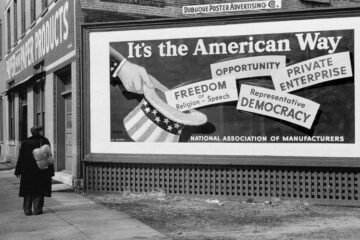George Scialabba in Commonweal:
 All men are brothers.” (Women too, of course.) If asked to agree or disagree with this statement, taken in a normative sense, most people would agree. At the moment, Ukrainians might make an exception for Russians, and Israelis and Palestinians for one another—though even they, if they listened to the better angels of their nature, might come around.
All men are brothers.” (Women too, of course.) If asked to agree or disagree with this statement, taken in a normative sense, most people would agree. At the moment, Ukrainians might make an exception for Russians, and Israelis and Palestinians for one another—though even they, if they listened to the better angels of their nature, might come around.
Why quote this old saw here? Because I have long felt that these four words are a complete and adequate political philosophy. A brother or sister shares most of one’s genes and usually a good many of one’s early formative experiences. It’s a tie that binds. Of course, most people are not literally our brothers or sisters. But the point of that archaic-sounding phrase “the brotherhood of man” is to jog our moral imaginations, to remind us that even if we don’t share parents with most other humans, we share with all of them something even more important, something that binds us to them even more strongly: a capacity for suffering. Remembering that makes it harder to be indifferent or cruel.
The most influential move in modern political philosophy is just such an appeal to our imaginations. In A Theory of Justice (1971), John Rawls, having defined fairness as the chief virtue of liberal societies, asks how we might all agree on what’s fair.
More here.
Enjoying the content on 3QD? Help keep us going by donating now.
